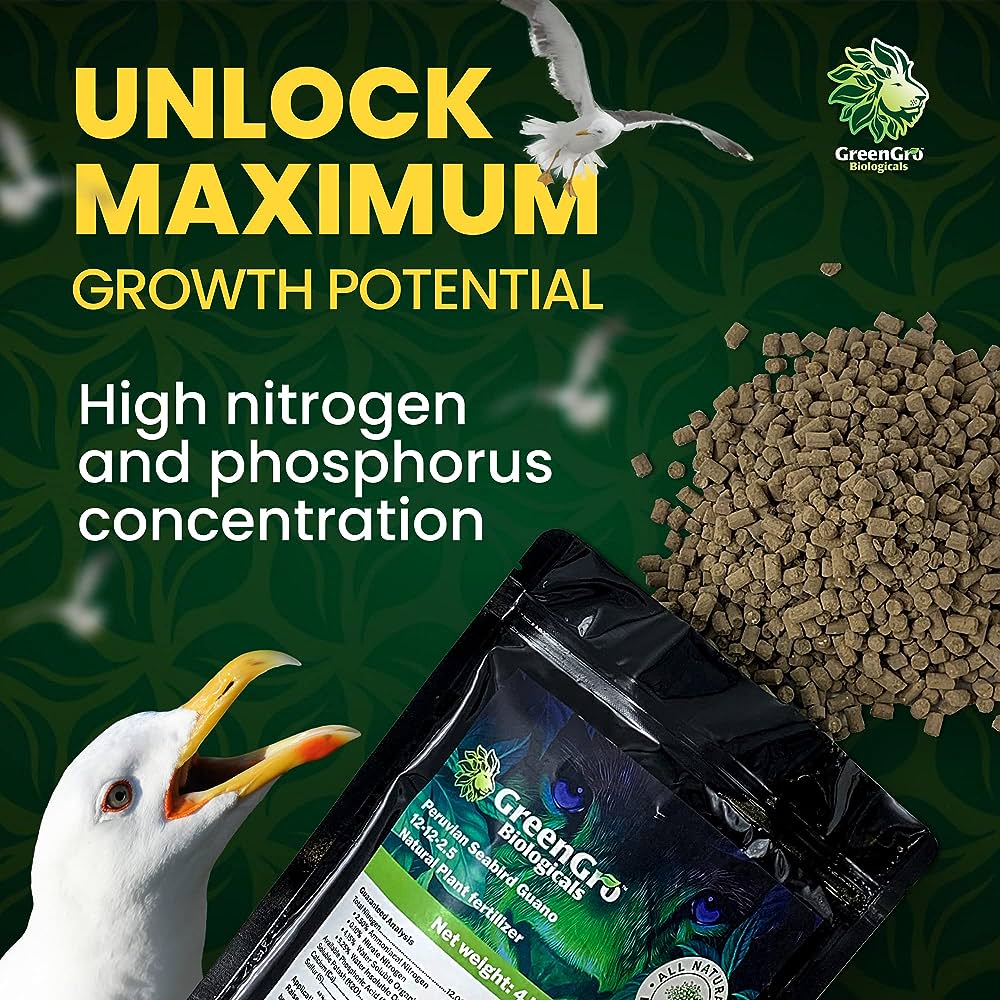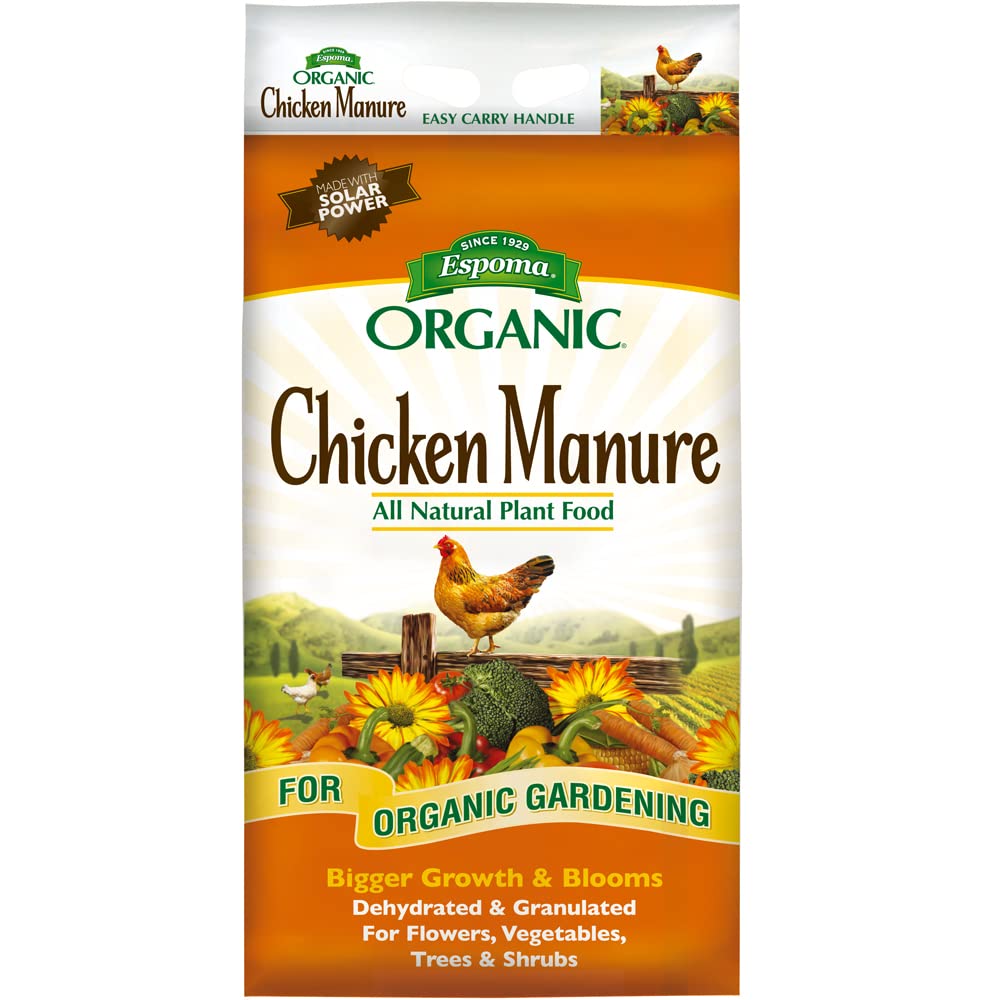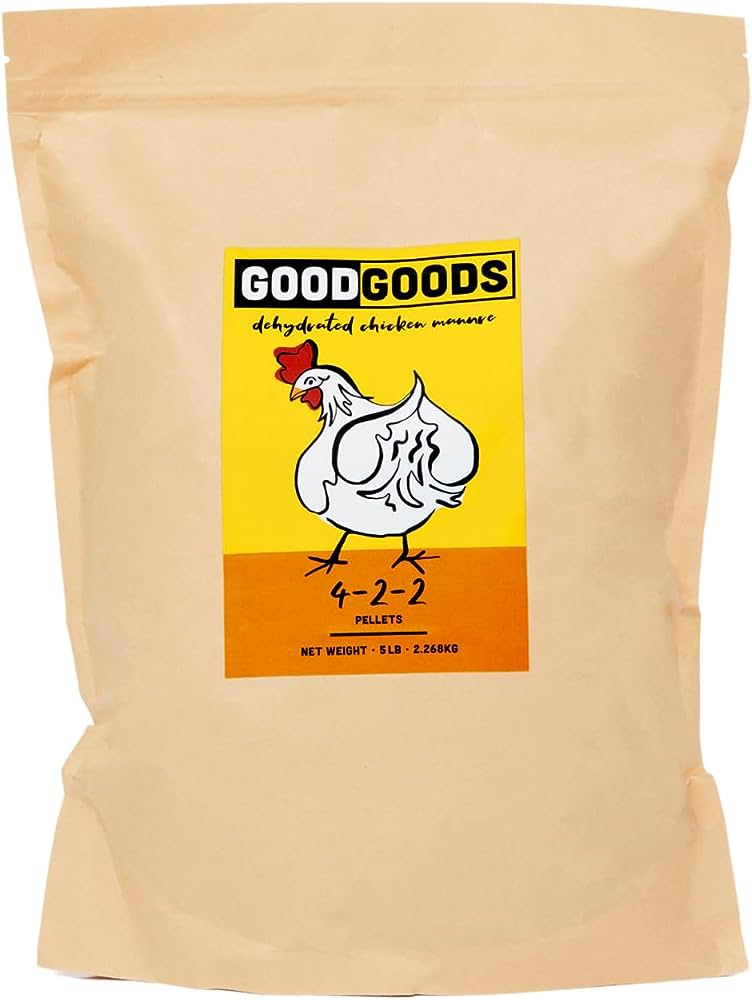Bird droppings: A natural fertilizer for thriving gardens. This article explores the benefits of bird droppings as a natural fertilizer for gardens. While some may view bird droppings as an unfortunate occurrence, they can actually help gardens thrive and flourish. Additionally, this article delves into the fascinating folklore surrounding bird poop, including its association with good luck and prosperity in many cultures. Furthermore, it highlights the interesting behaviors of the Black-capped Chickadee, the state bird of Maine, which uses bird poop to keep its nest clean. Whether you believe in the superstition or not, bird droppings play a vital role in the ecosystem and should be appreciated for their contributions.

The Benefits of Bird Droppings as Fertilizer
Nutrient-Rich Composition
Bird droppings, often referred to as guano, are a rich source of nutrients that can greatly benefit plants and gardens. They contain high levels of nitrogen, phosphorus, and potassium, which are essential elements for plant growth. These nutrients are released slowly over time, providing a steady and consistent supply for plants. Additionally, bird droppings also contain trace amounts of other important elements such as calcium and magnesium, further enhancing their nutritional value.
Improving Soil Quality
In addition to their nutrient-rich composition, bird droppings also have the ability to improve soil quality. The organic matter in droppings helps to enhance soil structure by increasing its water-holding capacity and improving its drainage. This allows for better aeration of the roots and prevents waterlogging. Moreover, the organic matter in bird droppings helps to promote the growth of beneficial microbes and earthworms, which play a vital role in maintaining soil health.
Promoting Plant Growth
When bird droppings are used as a fertilizer, they provide plants with a boost of essential nutrients, leading to vigorous growth and improved overall health. The high nitrogen content in bird droppings helps to stimulate leaf and stem growth, while the phosphorus promotes root development and flowering. Additionally, the potassium content aids in the production of fruits and seeds. By incorporating bird droppings into your gardening routine, you can expect to see increased yields and healthier, more vibrant plants.
Environmentally Friendly Option
Using bird droppings as fertilizer is not only beneficial for plants but is also an environmentally friendly option. Instead of relying on synthetic fertilizers that can harm the environment and contaminate water sources, bird droppings offer a natural alternative. By embracing this organic and sustainable approach to gardening, you can contribute to the preservation of ecosystems and the reduction of pollution.
Bird Droppings as Symbols of Luck
Folklore and Cultural Beliefs
Throughout history, bird droppings have held a special place in folklore and cultural beliefs. In many cultures, bird poop is believed to bring good luck and prosperity. It is seen as a sign of abundance and wealth, with the theory that if a bird has chosen your house or person as its target, it is bestowing its blessings upon you. This belief has been passed down through generations, and people often eagerly await a bird dropping on them or their property, considering it a fortuitous event.
Superstitions and Interpretations
On the other hand, there are also superstitions and interpretations that associate bird droppings with bad luck. Some cultures believe that if a bird defecates on you, it indicates impending misfortune or a negative omen. This belief is often accompanied by rituals or actions to ward off the supposed bad luck. However, it is important to acknowledge that these superstitions and interpretations vary across cultures, and individuals may perceive bird droppings differently based on their beliefs and personal experiences.
Bird Droppings and Ecological Significance
Role in Nutrient Cycling
Bird droppings play a crucial role in the natural process of nutrient cycling within ecosystems. When birds consume food, they extract the necessary nutrients for their own survival. However, they also excrete a significant portion of these nutrients in their droppings. This acts as a means of recycling nutrients back into the environment, allowing them to be utilized by other organisms. The nutrients present in bird droppings can be absorbed by plants, providing them with the resources they need for growth and development.
Enhancing Biodiversity
Bird droppings contribute to the enhancement of biodiversity within ecosystems. As birds move from one location to another, they inadvertently distribute seeds from the plants they have consumed in their droppings. This process, known as seed dispersal, helps to disperse plant species and increase their chances of survival. By spreading seeds through their droppings, birds play a vital role in the diversification and expansion of plant populations, ultimately contributing to the overall biodiversity of an area.
Supporting Ecosystems
The presence of bird droppings within an ecosystem provides valuable resources for a wide range of organisms. In addition to the nutrients they provide to plants, bird droppings also act as a food source for insects, fungi, and bacteria. These organisms break down the organic matter in the droppings, further enriching the soil and facilitating nutrient availability. The presence of bird droppings can attract a variety of organisms, creating a thriving ecosystem with interconnected relationships and dependencies.
Bird Species and Their Dropping Patterns
Variety of Bird Species
Birds come in a multitude of species, each with its own unique characteristics and habits, including their dropping patterns. Some bird species tend to produce droppings in specific locations or on specific surfaces, while others exhibit more random patterns. For example, birds that roost in specific areas, such as certain tree species, may consistently deposit their droppings in that location. Understanding the dropping patterns of different bird species can help individuals better manage and clean up after them.
Factors Influencing Dropping Patterns
Several factors can influence the dropping patterns of bird species. The size of the bird, its diet, and its metabolism all play a role in determining the frequency and consistency of droppings. Birds with high metabolic rates, such as hummingbirds, may produce more frequent and smaller droppings, while larger birds, like hawks or geese, may produce larger and less frequent droppings. Additionally, the availability of suitable perching or nesting sites can also influence where birds choose to deposit their droppings.
Individual Preferences
Just as humans have individual preferences, birds also have their own preferences when it comes to selecting appropriate locations for droppings. Some birds may prefer to deposit their droppings on open spaces, while others may have a preference for certain types of surfaces, such as rocks or branches. These individual preferences can differ even within the same species, making bird droppings a unique and interesting aspect of avian behavior.

Cleaning Bird Droppings from Outdoor Surfaces
Acting Quickly for Easy Removal
When bird droppings are left unattended on outdoor surfaces, they can become dried and hardened, making them more difficult to remove. It is best to act quickly and clean up bird droppings as soon as they are noticed. This will prevent the droppings from causing any damage to the surface or leaving behind unsightly stains. By promptly addressing the issue, you can save yourself time and effort in the long run.
Appropriate Cleaning Solutions
To effectively clean bird droppings from outdoor surfaces, it is important to use appropriate cleaning solutions. For most surfaces, a solution of warm water and mild detergent can be used to loosen and remove the droppings. Alternatively, a mixture of baking soda and water can also be effective in removing stubborn stains. It is essential to avoid using harsh chemicals or scrubbing too vigorously, as this can damage the surface.
Tips for Different Surfaces
Different outdoor surfaces may require specific cleaning techniques to safely and effectively remove bird droppings. For wooden surfaces, it is recommended to use a soft-bristle brush or sponge to gently scrub away the droppings. Plastic surfaces can be cleaned using a cloth or sponge soaked in warm soapy water. On glass surfaces, a glass cleaner or a vinegar-water solution can be used to remove the droppings. It is always advisable to test any cleaning solution on a small, inconspicuous area first to ensure it does not cause any damage.
Preventive Measures
Taking preventive measures can help minimize the occurrence of bird droppings on outdoor surfaces. Installing bird deterrents, such as spikes or netting, can discourage birds from perching or nesting in specific areas. Additionally, keeping outdoor areas clean and free of potential food sources, such as garbage or fallen fruit, can also reduce bird activity. Regularly inspecting and maintaining outdoor structures can prevent birds from finding suitable roosting or nesting sites, further reducing the chances of bird droppings accumulating.
Using Bird Droppings as Fertilizer in Gardens
Fresh vs. Aged Droppings
When using bird droppings as a fertilizer in gardens, it is important to consider whether to use fresh or aged droppings. Fresh droppings contain higher levels of nitrogen and can be too potent for some plants, potentially causing damage or burning. It is recommended to age the droppings for a period of at least six months to a year, allowing them to break down and mellow. Aged droppings have a lower nitrogen content and are safer to use, promoting healthy plant growth without the risk of over-fertilization.
Application Methods
There are several methods for incorporating bird droppings into garden soil. One common approach is to mix the droppings with compost or organic matter, such as shredded leaves or straw, before incorporating them into the soil. This helps to distribute the nutrients evenly and improves the overall organic content of the soil. Another method is to create a liquid fertilizer by steeping the droppings in water for a few days. This can then be applied directly to the soil or used as a foliar spray.
Precautions and Safety
When handling bird droppings, it is important to take precautions to ensure safety. Bird droppings may contain bacteria, parasites, or other pathogens that can be harmful to humans. It is recommended to wear gloves and a mask when handling droppings, especially if they are fresh. It is also advisable to wash hands thoroughly after handling droppings, even when precautions have been taken. By following these safety measures, you can minimize any potential health risks associated with the use of bird droppings as fertilizer.
Composting Bird Droppings
Composting bird droppings can be an effective way to further break them down and harness their benefits. When adding droppings to a compost pile, it is important to mix them with other organic materials, such as leaves or straw, to achieve a balanced carbon-to-nitrogen ratio. This ensures a proper breakdown of the droppings and prevents them from becoming too concentrated. Regularly turning the compost pile and maintaining appropriate moisture levels will facilitate the decomposition process and result in nutrient-rich compost.

Other Uses of Bird Droppings
Historical Uses
Bird droppings have been utilized for various purposes throughout history. In ancient times, the valuable nutrients in bird droppings were recognized, and they were collected from seabird colonies and used as a fertilizer to enhance agricultural productivity. Additionally, some cultures used bird droppings as a component in traditional medicines, as they were believed to possess healing properties. The historical uses of bird droppings highlight their significance and value in different societies and contexts.
Cultural and Religious Practices
Bird droppings have also played a role in cultural and religious practices. In some cultures, the presence of bird droppings on a person’s property or belongings is considered a sign of good fortune and is embraced as a symbol of luck. These beliefs have been passed down through generations and are deeply rooted in certain traditions and customs. Bird droppings are sometimes incorporated into rituals or ceremonies to invite prosperity and protection. The cultural and religious practices surrounding bird droppings showcase the diverse and multifaceted perception of these natural phenomena.
Bird Droppings: Potential Risks and Precautions
Pathogens and Health Concerns
While bird droppings can provide numerous benefits, it is important to be aware of potential health risks associated with their handling and exposure. Bird droppings may carry harmful bacteria, parasites, or viruses that can cause illnesses in humans. These can be contracted through direct contact, inhalation of dried droppings, or ingestion of contaminated food or water. Certain pathogens, such as those found in pigeon droppings, can result in respiratory issues or flu-like symptoms. It is crucial to take necessary precautions when dealing with bird droppings to mitigate any health concerns.
Protective Measures
To protect against potential health risks associated with bird droppings, it is recommended to wear gloves, a mask, and protective clothing when handling them. Avoid stirring up dust or dry droppings, as this can release harmful particles into the air. If cleaning or removing significant amounts of droppings, consider wetting the area beforehand to minimize the dispersion of particles. It is also advisable to clean and disinfect any tools or equipment used during the removal or handling process. By following these protective measures, individuals can safeguard their health and well-being.
Dealing with Allergies
Some individuals may be allergic to bird droppings or the components present in them. Exposure to bird droppings can trigger allergic reactions, such as sneezing, coughing, itchy eyes, or skin rashes. If you suspect you have an allergy to bird droppings or are experiencing any allergic symptoms, it is important to consult with a healthcare professional for proper diagnosis and treatment. They can provide guidance on managing your allergy and offer appropriate solutions to minimize your exposure to bird droppings.
Alternative Fertilizer Options
For individuals who are concerned about the potential risks associated with handling bird droppings or have specific allergies or sensitivities, there are alternative fertilizer options available. Organic fertilizers derived from plant or animal materials, such as compost or manure, can provide similar benefits to bird droppings without the associated risks. These alternatives can still enrich the soil, promote plant growth, and contribute to a healthy garden while offering peace of mind.

Embracing Bird Droppings as a Natural Component
Appreciating the Ecological Cycle
Bird droppings, despite their sometimes inconvenient presence, are an integral part of the ecological cycle. They provide vital nutrients to plants, support diverse ecosystems, and contribute to the overall health of the environment. By embracing the role of bird droppings in nature, individuals can develop a greater appreciation for the complexity and interconnectedness of the natural world.
Promoting Environmental Stewardship
Using bird droppings as fertilizer is an eco-friendly choice that promotes environmental stewardship. By opting for natural and sustainable practices in gardening, individuals can reduce their reliance on synthetic fertilizers, which can have detrimental effects on ecosystems and water sources. Furthermore, the use of bird droppings encourages the preservation of bird populations and their habitats, further contributing to the conservation of biodiversity.
Harmonizing with Superstitions
Rather than dismissing or solely accepting the superstitions surrounding bird droppings, individuals can find harmony in their existence. Regardless of personal beliefs, embracing the presence of bird droppings as a natural phenomenon can serve as a gentle reminder of the diversity and wonder of the natural world. Whether viewed as lucky or unlucky, bird droppings provide an opportunity to reflect on the cultural and historical significance attached to them and celebrate the unique perspectives that shape our understanding of our surroundings.
In conclusion, bird droppings offer a range of benefits, from serving as nutrient-rich fertilizer for gardens to playing a role in folklore and superstitions. Their ecological significance extends beyond their role as fertilizers, contributing to nutrient cycling, enhancing biodiversity, and supporting ecosystems. Understanding bird species and their dropping patterns can help in managing and cleaning outdoor areas effectively. When handling bird droppings, it is important to take precautions and consider safety measures due to potential health risks. However, by embracing bird droppings as a natural component, individuals can appreciate their ecological value, promote environmental stewardship, and find harmony in the cultural interpretations surrounding them.
Leave a Reply